E3: Finally some progress on diversity?
- Published
Several of E3's big new games have female or black lead characters
If the act of improving diversity in video games needs a motto, how about this: "I just don't think that women should fight in bras on the battlefield."
It's really rather good, I think.
Paul Wedgwood, chief executive of games studio Splash Damage, was highlighting what he sees as an unquestionable absurdity: women are sometimes portrayed in games ludicrously and inappropriately dressed for the situation they are in - as if heaving cleavage was a more effective defence than body armour.
"We must not forget that we are entertainment," he added.
"There's nothing wrong with sexualising men or women, because that is called for in certain narratives and with certain casts.
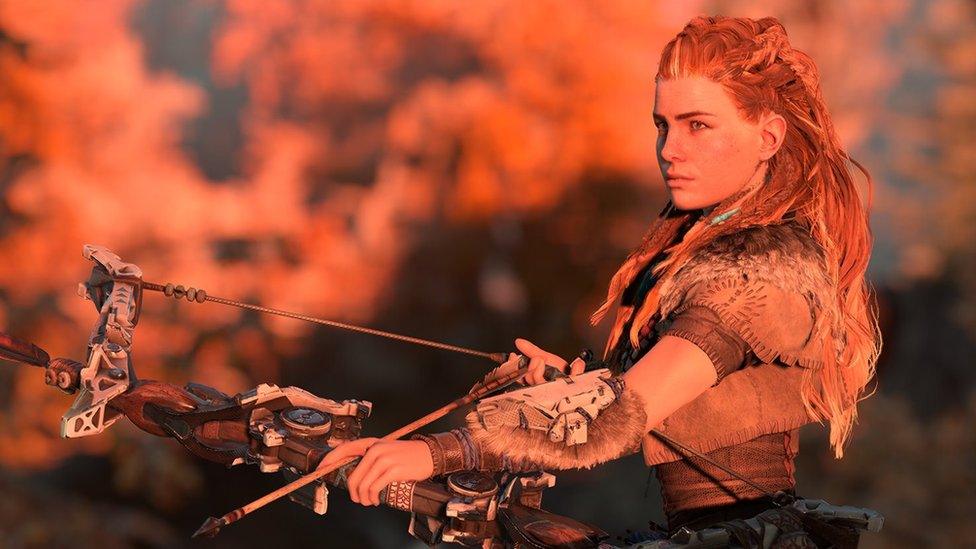
Horizon: Zero Dawn has a fully-clothed female protagonist
"Just rarely is it necessary when someone is holding an AK-47."
Splash Damage, based in Bromley, UK, is a independent games studio that has worked on all manner of what you might consider to be uber-masculine titles. Games like Doom, Wolfenstein and Gears of War.
He and his colleagues were at the E3 games expo to promote Dirty Bomb, a first-person shooter in which you take control of a large cast of mercenaries deployed to a London ravaged by severe radiation.
It's a game that has been quietly complimented on its portrayal of women. They're strong. They're fearsome. They're sexy. And they're dressed… here's the breakthrough... like soldiers.
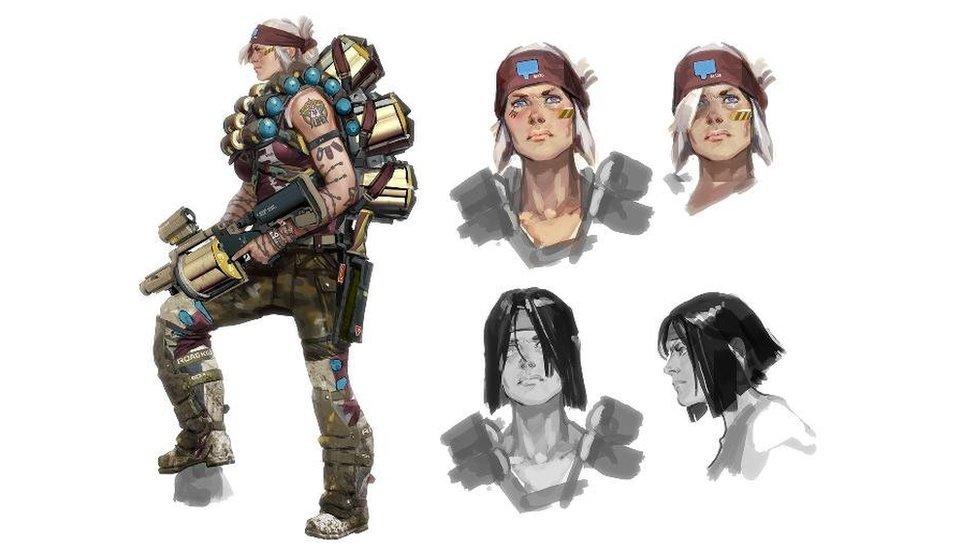
Female characters in Dirty Bomb are practically dressed while still being attractive, the games's creators say
Proactive protagonists
Mr Wedgwood makes it seem so simple.
But we can't get away - and we've been writing about it for years - from gaming's diversity issue, one that evolves constantly as new titles and trends emerge.
Two years ago at this event, there was considerable uproar when it was revealed that the new Assassin's Creed title would feature four playable characters, but not a single woman. Developer Ubisoft didn't help the matter by saying that plans for a female character were shelved as developers would have to "re-do a lot of animation".
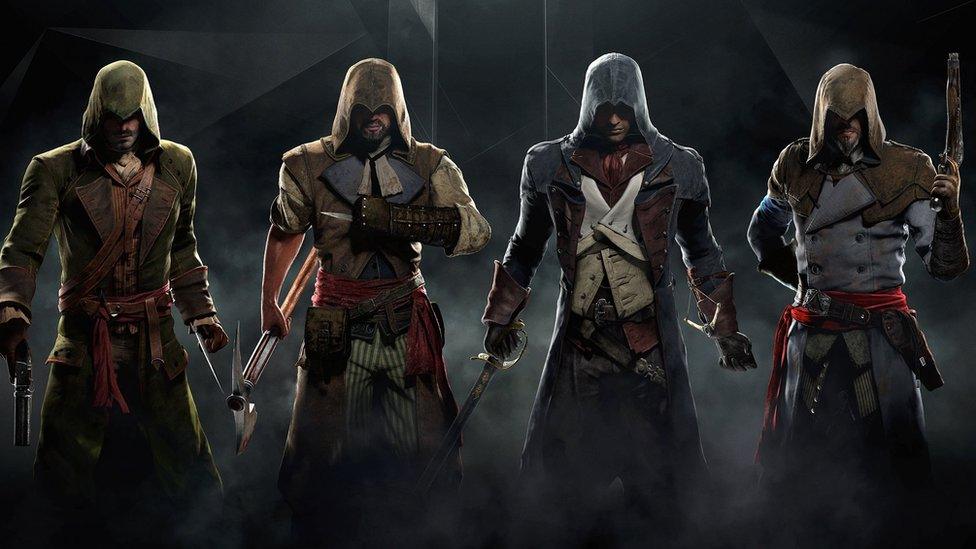
Assassin's Creed: Unity caused controversy at E3 in 2014
Two years on, this year's E3 should have, in theory, given us some idea whether the upset over Assassin's Creed - as well as a more general, widespread call for change - led to a greater effort from big publishers to reassess their direction. Two years is ample lead time to conceive, design and develop a game that would be ready for viewing at E3 2016.
By some counts, there are fewer playable female characters, external in this year's new titles. But that's maybe not a fair reflection. Both Sony and Microsoft rolled out big new titles with prominent female characters.
Recore (Xbox One) features Joule Adams, an agile heroine who calls upon several robotic sidekicks - named Mack, Seth and Duncan - to explore a mysterious, isolated world.
In Horizon: New Dawn (PlayStation 4), you play Aloy. She finds herself up against dinosaur-like robots with not much more than a bow, arrow and knife.
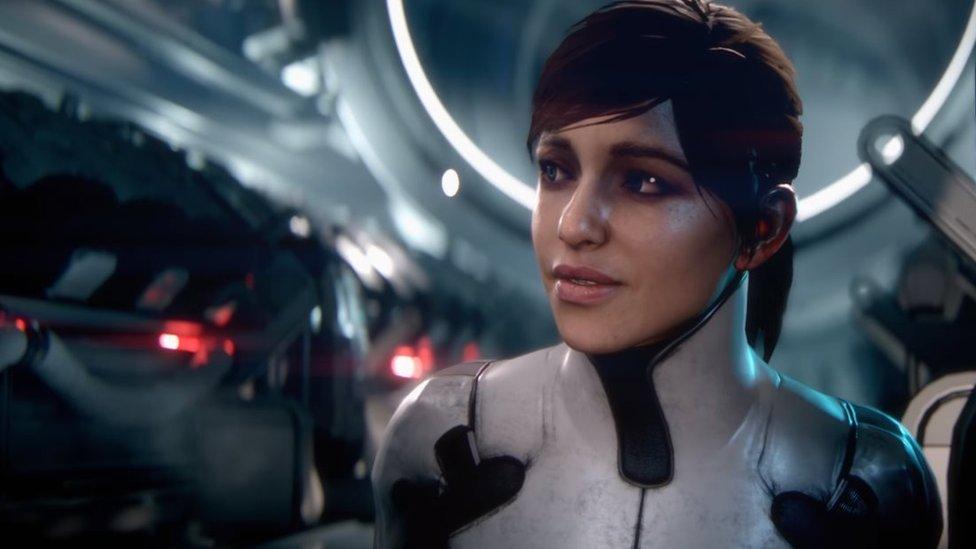
Mass Effect: Andromeda's trailer revealed a female character at its end
And Mass Effect: Andromeda (cross platform) appears to have a female character as the default, though you can play as a male if you wish.
Club play
The key point from the E3 games line-up is that the female character-led games aren't niche or quirky efforts, but blockbuster titles with huge budgets.
But it would be naive to say the issue of diversity in gaming starts and ends with a different line-up of characters. Improving diversity in "games" is different from improving diversity in "gaming".
At this year's E3, Microsoft launched Gaming for Everyone, a scheme that hopes to group gamers by the type of experience they are looking for - an attempt to provide an alternative to the sometimes harsh discourse that many might find uncomfortable or maybe just irritating.
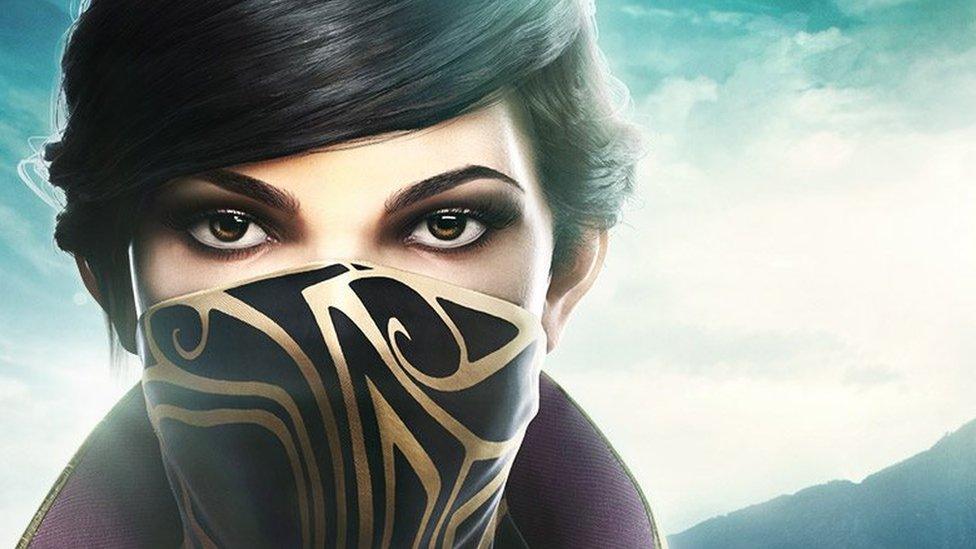
Bethesda's Dishonored 2 is another game with a female protagonist
"One of our ideas is around looking for groups or clubs on Xbox Live," explained Letty Cherry, Xbox's head of PR.
"It's giving people all of the different choices to create games the same way that they play them. Do they feel it's a safe environment? Do they feel it's a comfortable environment?
"If a woman wants to play a game and she only wants to play with other females, great. We have so many different ways of having choice. We're not trying to ostracise anyone."
Fifa's story
The debate around diversity in gaming tends to initially gravitate towards issues around gender, but it of course can also be about race, ethnicity and sexuality.
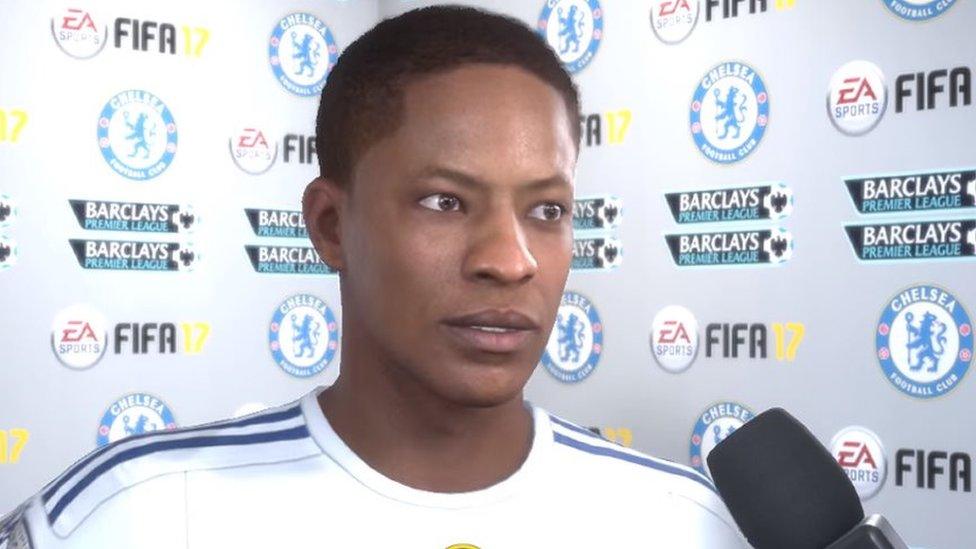
Black Londoner Alex Hunter is the subject of Fifa's new story mode
Progress with race can perhaps be best seen in EA's latest incarnation of its Fifa football series. In Fifa 17, you can play a story mode in which you control a promising young, black footballer from Clapham, London.
Meanwhile, the new instalment of action game Watch Dogs will also feature a black lead character - Marcus Holloway, a young hacker from Oakland, California.
But while there is a thriving lesbian, gay, bisexual, and transgender (LGBT) gaming community, games are often lacking in openly gay prominent, playable characters that move past stereotypes.
"We are working on it," adds Microsoft's Ms Cherry.
"I think there is way more we could be doing. We are climbing a mountain and we have many more steps.
"The industry has tonnes of work to do to make it more welcoming for everyone."
Follow Dave Lee on Twitter @DaveLeeBBC, external and on Facebook , external
- Published15 June 2016